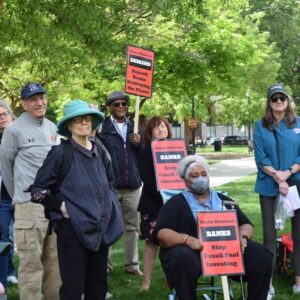September 1, 2017
‘Ongoing, Willful, Contractual Violations’
(This article first appeared in the Sept-Oct 2017 issue of the American Postal Worker magazine)
By Clerk Craft Directors
The APWU won another important victory in a national arbitration case regarding violations of POStPlan agreements.
The violations were twofold: The Postal Service’s improper use of Postmaster Reliefs (PMRs) working in Level 4 and Level 6-hour Remotely Managed Post Offices (RMPOs) and the use of Postal Support Employees (PSEs) instead of career employees in Level 18 offices. The Postal Service admitted to these violations of the POStPlan agreements. Arbitrator Stephen Goldberg held that the USPS owed the bargaining unit for all the hours improperly worked by PMRs and PSEs.
The victory on the PMRs and PSEs is the latest in a series of arbitration wins where the Postal Service engaged in willful and blatant violations of the contract and the main focus of the arbitration was remedy. Management regularly makes cruel and calculated decisions to violate the contract on the premise that they will benefit more by violating the contract than the cost of breaking it.
Eliminating Jobs and Potential Excessing
One of the Postal Service’s current ongoing, willful, contractual violations is the practice of eliminating duty assignments, despite clear evidence the duty assignments are needed. The USPS is mostly eliminating duty assignments that are temporarily vacant (reversions), but in some cases are eliminating duty assignments that are filled (abolishments). In eliminating duty assignments, the Postal Service avoids the conversion of PSEs to career because if there are not enough duty assignments, the PSEs have no duty assignment they can convert to.
In addition, management is threatening the excessing of employees, claiming they are overstaffed by over 12,000 Clerk Craft duty assignments. However, the long lines and delayed mail are a testament to the fact that more workers are needed, not less. Even if excessing did not actually occur, wielding the threat of excessing allows the Postal Service to withhold vacant duty assignments for potentially excessed employees. The withholding of duty assignments means that Part-Time Flexibles (PTFs) and PSEs are not converted to full- time career duty assignments, as again, there are not duty assignments available to fill.
APWU Fighting Back
Once a contract is agreed upon, the grievance procedure is in place to handle honest disagreements, which should be rare. Management is instead willfully violating the contract when it is to their selfish advantage to do so. While we must be even more vigilant in filing grievances, we also must engage in other creative actions so management loses more by violating the contract than when they honor it.
The APWU has been implementing a plan to fight back against the elimination of duty assignments that are clearly needed and any resulting cuts in service. We are meeting with management at every level, providing stewards with training on how to demonstrate new duty assignments, and assisting with the grievances.
It is very important to shine a light on management’s bad behavior. Locals in Baltimore, Seattle and Charlotte held events to inform the public about the Postal Service’s plans for more cuts in service. National officers at APWU headquarters will continue to actively lend support in public relations and organizing for local and state organizations which decide to hold press conferences, rallies and other events to inform the public that our Postal Service is under attack.
As postal workers, we deserve and expect management to treat us with respect, to honor their contracts with us and to provide good service to the American people. We are not going to wait for some in management to change their dishonest behavior. Instead we will work together, with all four postal unions and our community allies, to provide the necessary motivation for everyone in postal management to honor the contracts made in good faith with postal workers and to provide consistently excellent service to the public.



